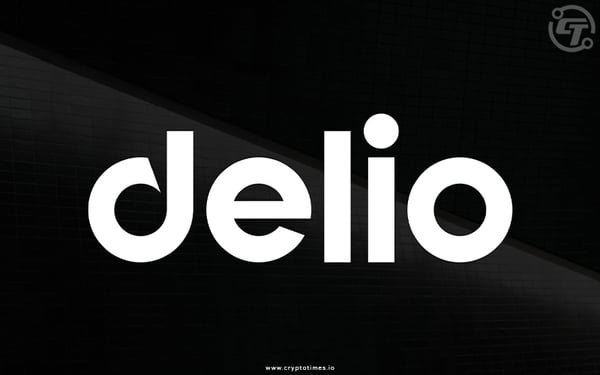The crypto lending firm of South Korea, Delio finds itself in the midst of a serious crisis after its assets were seized by the country’s financial regulator, the Financial Services Commission (FSC).
A July 18 search and seizure operation resulted in the confiscation of all assets owned by customers and the company, including cold wallets and ledgers. The move has raised concerns over Delio’s ability to provide normal services to its clients.
In a blog post on July 22, the company revealed that interest payments for deposit and vault users have been suspended since July 24.
Delio, founded in 2018, offers an array of custody, lending, and staking services. With approximately $1 billion in Bitcoin, $200 million in Ether, and around $8.1 billion in altcoins, the firm has been a prominent player in the crypto industry.
The trouble began on June 14 when Delio abruptly halted withdrawals and deposits on its platform. The decision was made to protect customer assets amid market volatility caused by a similar move from its sister lending company, Haru Invest.
The latter had suspended withdrawals on June 13 after discovering false information provided by its consignment operator, B&S Holdings. Haru Invest subsequently initiated legal proceedings against B&S Holdings.
Although Delio’s CEO, Jung Sang-ho, announced on June 17 that withdrawals would resume, the FSC took a stern stance against the firm. The regulatory body launched an investigation into Delio’s suspension of withdrawals and later sued the company for fraud, embezzlement, and breach of trust.
This lawsuit also resulted in travel bans for CEO Jung Sang-ho and other key figures within Delio.
As a consequence of the ongoing legal battle with depositors and the asset seizure by the FSC, Delio has found it challenging to continue offering its usual services to clients.
Additionally, any services requiring additional expenses, including interest payments and operational expenses, have also been halted.
The situation poses a significant risk to Delio’s reputation and raises concerns about the security of customer funds. The company’s efforts to protect assets and navigate market volatility have, ironically, led to a legal quagmire, attracting scrutiny from regulators.






